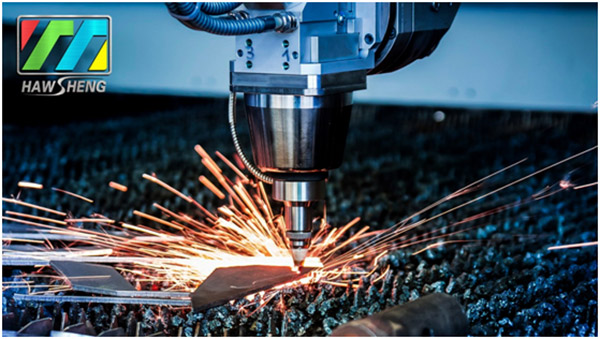Stubborn craftsmanship: we don't believe in good value for money!
- Categories:Hawsheng News
- Author:
- Origin:
- Time of issue:2020-04-21
- Views:0
(Summary description)Speaking of Made in Germany, you may not know the humiliation they once carried, you only know that Siemens, Mercedes-Benz, BMW, Bayer, Henkel, Adidas and other brands are German, but also become synonymous with world-renowned high-quality products. How has the German spirit been promoted? Made in Germany, not pursuing price, but pursuing value, not pursuing appearance, but pursuing detail, not pursuing advertising, but pursuing word of mouth, not pursuing speed, but pursuing quality! German artisans: we don't believe in good value for money! The German nation started industrialization very late, when Britain and France completed the Industrial Revolution, Germany was still an agricultural country. Today, however, in a country with a population of only 80 million, there are more than 2,300 world-famous brands. What is the reason for the world-famous "Made in Germany"?
Stubborn craftsmanship: we don't believe in good value for money!
(Summary description)Speaking of Made in Germany, you may not know the humiliation they once carried, you only know that Siemens, Mercedes-Benz, BMW, Bayer, Henkel, Adidas and other brands are German, but also become synonymous with world-renowned high-quality products. How has the German spirit been promoted? Made in Germany, not pursuing price, but pursuing value, not pursuing appearance, but pursuing detail, not pursuing advertising, but pursuing word of mouth, not pursuing speed, but pursuing quality! German artisans: we don't believe in good value for money! The German nation started industrialization very late, when Britain and France completed the Industrial Revolution, Germany was still an agricultural country. Today, however, in a country with a population of only 80 million, there are more than 2,300 world-famous brands. What is the reason for the world-famous "Made in Germany"?
- Categories:Hawsheng News
- Author:
- Origin:
- Time of issue:2020-04-21
- Views:0
Speaking of Made in Germany, you may not know the humiliation they once carried, you only know that Siemens, Mercedes-Benz, BMW, Bayer, Henkel, Adidas and other brands are German, but also become synonymous with world-renowned high-quality products. How has the German spirit been promoted? Made in Germany, not pursuing price, but pursuing value, not pursuing appearance, but pursuing detail, not pursuing advertising, but pursuing word of mouth, not pursuing speed, but pursuing quality! German artisans: we don't believe in good value for money! The German nation started industrialization very late, when Britain and France completed the Industrial Revolution, Germany was still an agricultural country. Today, however, in a country with a population of only 80 million, there are more than 2,300 world-famous brands. What is the reason for the world-famous "Made in Germany"?

1. "Made in Germany" used to be an insulting symbol.
The Germans also went through a "copycat phase" after industrialization: they learned from Britain and France, stole other people's technology and copied other people's products.
On August 23, 1887, the British Parliament passed an amendment to the Trade Marks Act, requiring all German imports into the British market to be marked "Made in Germany". "Made in Germany" was actually an insulting symbol at the time.
At the beginning of Germany's industrialization, scientific research in universities was completely disconnected from the production sector. Although the "world center of science" was in Germany at that time, Americans were smart enough to return home with degrees from Germany, not to do research in universities and colleges, but to go into the market and start businesses.
In the early 1890s, German scientists went to the United States to see, found that the United States industrial products of the highest scientific and technological content, it is only then clearly put forward the "theory and practice" approach, and began to vigorously promote the development of applied science. Because Germany has a strong foundation in basic science, soon established a link between scientific theory and industrial practice, so that in half a century the world's leading scientists, engineers and technical workers together, leading the "internal combustion engine and electrification revolution", so that the German industrial economy has gained leaps and bounds! The development of "Made in Germany".
Since then, German machinery, chemicals, electrical appliances and optics, as well as kitchen utensils and sporting goods, have become some of the highest quality products in the world, and "Made in Germany" has become synonymous with quality and prestige. Almost all of Germany's most famous companies grew up in that era. They all maintain their worldwide reputation to this day.
2、Preciating the "fame of the future", not greedy for "immediate profits".
Germany is not a nation of people who are tired of the old and the new; Germans like things that have been experienced, things that have a historical memory, things that have a cultural memory.
I know a German professor who still has a tube radio as big as a wooden case at home, produced in the 1960s. I asked him, "Do you still use something so old?" He said, "Yes uh, as soon as I see it, I'm reminded of the stories that took place around this radio when I was a young child, and it's more precious to me than anything else!"
The ballpoint pens produced by the Germans have been dropped 10 times and are still usable when picked up. The houses built in Germany will not collapse for 120 years, even if they are destroyed by the war, the Germans will definitely rebuild them as they are.
There is a photo of German architecture called "Germany unchanged", which shows the houses built by Germans after World War II in the late medieval baroque and rococo style. Why? After the end of World War II, almost all of Germany's cities were in ruins, the old houses were basically destroyed by the war, and the Germans were very distressed because they just loved their culture. What to do? The Germans are dead set on finding the photos and the designs from back then, and they must be rebuilt one by one as they were originally built. When you go to Germany today, most of the cities have no modern architecture and are almost entirely Baroque and Rococo.
There was a royal opera house in Germany that was all bombed by American planes in World War II, and the Germans were so distraught that the opera house was built in the past 200 years before it was destroyed. What to do?
After the Second World War, the Germans put this ruin in a circle, engaged a group of scientists, cultural scientists, archaeologists, architects, technical workers, about hundreds of people, and spent 35 years to put this pile of broken bricks and tiles back together again, you look at the Royal Opera House now, how can you not see that it was a bomb that destroyed it and then put it back together again, this building has become "the world". Cultural Heritage". According to UNESCO, "this action is in itself a world cultural heritage". It is because Germany loves and respects its culture so much that it is called "unchanging Germany".
Since Germany's economic development does not depend on the real estate market, it is very difficult for a German architect to get a building project, and if he wins the tender, he will definitely design it with care, and make it into a fine art and make it last for a hundred generations.
Therefore, in Germany, you will never see two buildings that will be the same.
Therefore, people say, German architects do not pay attention to the "immediate profit", but "the name of the future". A small screw reflects the "craftsmanship" inherited from German manufacturing industry.
The so-called "craftsmanship" means that an artisan should have good professionalism, concentrate on each product and each process, strive for perfection, and pursue the ultimate, "even if we make a screw, we have to be the best".
Bechstein is a world-renowned German piano manufacturer. For more than 162 years, Bechstein has been manufacturing pianos with the spirit of perfection and treating each piano as a work of art.
In order to guarantee the professionalism of its technicians, Bechstein has established an apprenticeship system, with only two apprentices worldwide in 2012, increasing to six per year in 2013. According to Werner Albrecht, head of the company's service department and master piano maker, the apprentices spend three and a half years in rotation, with each apprentice spending between one week and one month in each department, where the best veteran craftsmen are sent to teach piano making skills themselves.
Bechstein not only trains piano makers, but also service technicians for pianos sold all over the world. Albrecht said, "Germany has a very unique vocational training system, and many people consider Bechstein's training for piano makers to be the best."
Frankfurt University of Finance and Economics Management economist Bo Fei said, the German manufacturing research and development staff do not need to consider the "cost", what they seek is to produce the best quality products. Simply put, that is, "but the best, not afraid of the most expensive". This is also why some German-made products are able to occupy the leading position in the high-end market in the international market.
Bofei has been tracking and studying German SMEs for a long time. He said that long-term vision is the distinctive feature of German SMEs, and that changes in the industry environment in one or two or even three or five years will not affect their focus on their own products. Because of their focus, German entrepreneurs often spend their whole life to build a quality product, and even pass it down from father to son.
In addition to the well-known brands such as Mercedes-Benz, BMW, Audi, Bosch and Siemens, there are also thousands of small and medium-sized enterprises (SMEs) in Germany that ordinary consumers have never heard of, most of which are "specialized".
In Germany's Lower Saxony city of Osnabrück, there is a company called Hellmann International Logistics, the company's president Krause Heilemann said, German small and medium-sized enterprises, especially family-owned enterprises in their own industry has a complex, even if the industry is temporarily recessionary, they will not give up lightly.
For most Germans, "perfection" does not exist, and no matter how good a product or a thing is, there is always the possibility of making it better. German manufacturing companies have their sights set on these possibilities.
Scan the QR code to read on your phone
Guangzhou HawSheng Food Machinery Co.,Ltd
Service Hotline:
Address.:
No.65 Shanqian Avenue, Shiling Town, Huadu District, Guangzhou, China
Copyright:Guangzhou HawSheng Food Machinery Co.,Ltd 粤ICP备05037924号 Powered By:300.cn





 020-3238 7087
020-3238 7087

 Message
Message 
